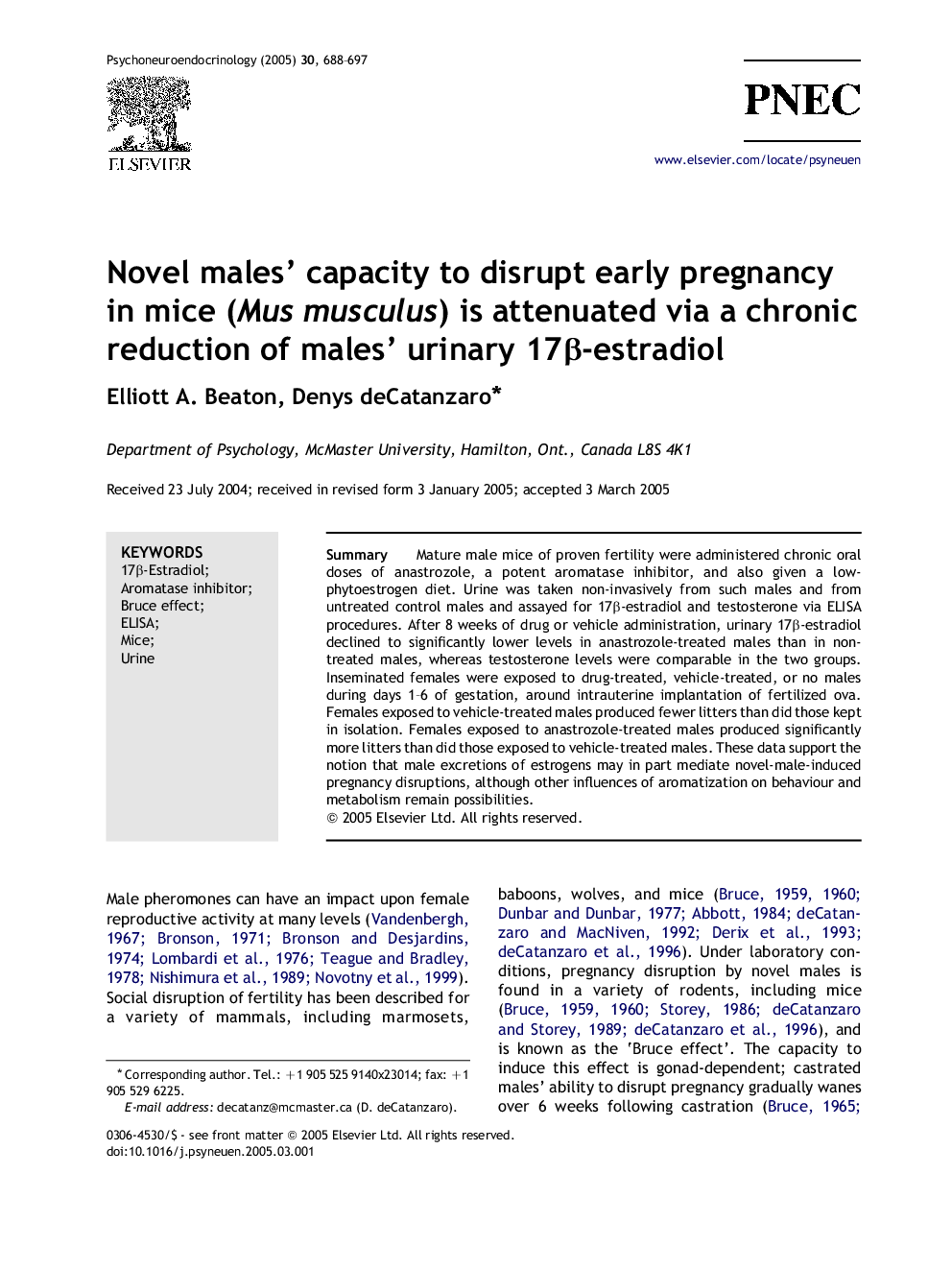| Article ID | Journal | Published Year | Pages | File Type |
|---|---|---|---|---|
| 10306155 | Psychoneuroendocrinology | 2005 | 10 Pages |
Abstract
Mature male mice of proven fertility were administered chronic oral doses of anastrozole, a potent aromatase inhibitor, and also given a low-phytoestrogen diet. Urine was taken non-invasively from such males and from untreated control males and assayed for 17β-estradiol and testosterone via ELISA procedures. After 8 weeks of drug or vehicle administration, urinary 17β-estradiol declined to significantly lower levels in anastrozole-treated males than in non-treated males, whereas testosterone levels were comparable in the two groups. Inseminated females were exposed to drug-treated, vehicle-treated, or no males during days 1-6 of gestation, around intrauterine implantation of fertilized ova. Females exposed to vehicle-treated males produced fewer litters than did those kept in isolation. Females exposed to anastrozole-treated males produced significantly more litters than did those exposed to vehicle-treated males. These data support the notion that male excretions of estrogens may in part mediate novel-male-induced pregnancy disruptions, although other influences of aromatization on behaviour and metabolism remain possibilities.
Related Topics
Life Sciences
Biochemistry, Genetics and Molecular Biology
Endocrinology
Authors
Elliott A. Beaton, Denys deCatanzaro,
